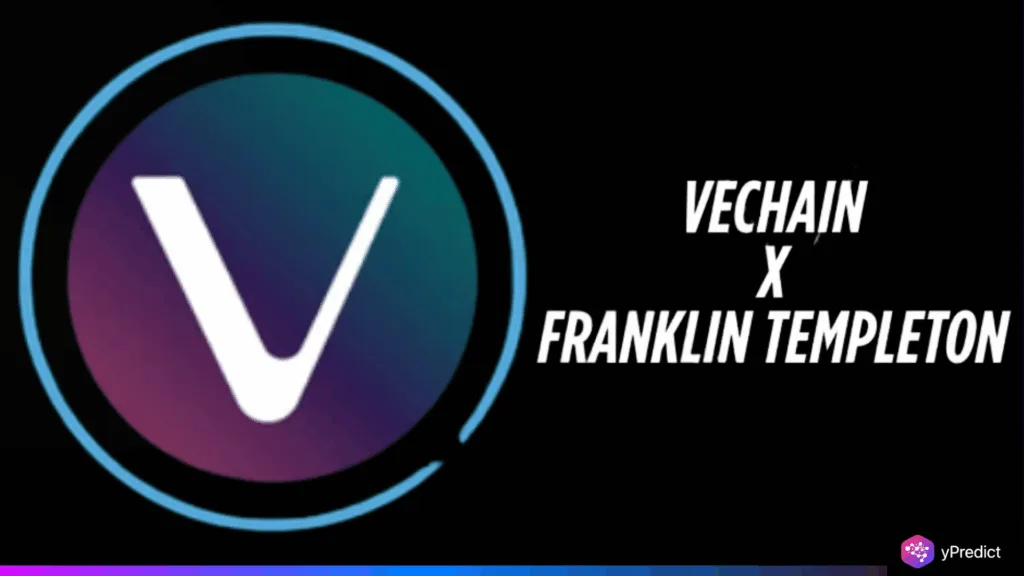
Franklin Templeton has taken a major step in enterprise blockchain adoption by integrating its BENJI Platform with VeChain’s layer-1 blockchain. This move strengthens the asset manager’s push into AI-powered financial systems while extending its digital payment ecosystem. With $1.5 trillion in assets under management, Franklin Templeton now positions VeChain as a key player in tokenized asset delivery. The BENJI Platform, already live on networks like Stellar and Ethereum, now leverages VeChain’s predictable transaction costs and enterprise-grade performance to enhance AI compatibility and scale real-world adoption.
BENJI Platform Moves to VeChain
Franklin Templeton has officially launched the BENJI Platform on VeChain, deepening its multi-chain strategy. This platform provides tokenized access to Franklin Templeton’s OnChain U.S. Government Money Fund. The VeChain integration brings the total supported networks to eight, joining major players like Ethereum and Stellar.
The decision to include VeChain reflects a broader focus on using AI to optimize fund distribution and payment execution. By incorporating VeChain’s smart contract capabilities and low-latency architecture, Franklin Templeton ensures the BENJI Platform can meet growing AI-driven demands in digital finance. The move reinforces BENJI’s aim to enable faster, more transparent, and efficient payment systems while reducing friction for institutional users.
AI-Driven Payments Demand Stable Infrastructure
VeChain offers consistent performance, making it attractive for AI-powered systems handling sensitive financial operations. Its architecture supports scalable transaction volumes with minimal congestion, a requirement for any enterprise deploying AI to automate fund flows and payment routing.
With AI now central to digital finance operations, VeChain’s stability offers a reliable foundation for executing intelligent decision-making processes. Franklin Templeton is counting on that infrastructure to support algorithms that manage liquidity, execute trades, and process investor redemptions in real time. The BENJI Platform benefits directly, with VeChain boosting both speed and cost-efficiency while accommodating AI systems that demand consistency and scale.
Early VeChain Adoption Signals Strong Potential
Data from RWA.xyz shows that the total value locked (TVL) on VeChain for the BENJI Platform stands at $1.7 million. While this number is modest, it highlights the beginning of a longer-term strategy that uses AI to expand institutional blockchain use cases.
Franklin Templeton’s move isn’t about immediate volume—it’s about laying the groundwork for intelligent finance systems. AI models trained to optimize payment flows and liquidity provisioning will rely on VeChain’s performance as they scale. The current TVL may be low, but it reflects VeChain’s early-stage position in a growing AI-powered financial ecosystem.
Enterprise Blockchain Sees Strategic Growth
This integration sends a clear signal: Franklin Templeton is betting on VeChain’s AI-readiness and long-term scalability. By expanding BENJI to VeChain, the firm demonstrates confidence in the blockchain’s ability to support real-world, tokenized payment infrastructures. As the platform expands, its AI systems will assume a more significant role in automating financial processes, reducing settlement delays, and managing compliance requirements with increased accuracy. The partnership also encourages other enterprises to view VeChain as a viable platform for AI-integrated finance.
It positions the blockchain as more than a supply chain tool—it now serves as a key infrastructure layer for AI-based asset tokenization. With Franklin Templeton leading the charge, VeChain adoption could rise sharply across AI-driven financial products. Franklin Templeton’s integration of the BENJI Platform with VeChain is a calculated move to merge AI innovation with enterprise blockchain performance. By choosing VeChain, the asset manager gains a stable, cost-efficient foundation to power intelligent fund operations.






